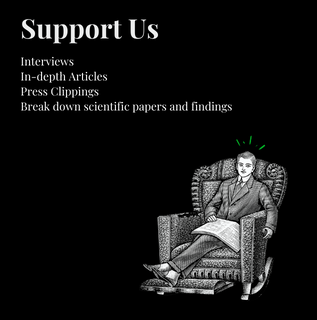It is a critical moment for public health policy in Spain. The Ministry of Health has initiated a public consultation as part of its ambitious Comprehensive Plan for the Prevention and Control of Smoking 2024-2027. This plan includes drastic measures such as prohibiting flavors in vaping products and introducing plain packaging. However, recent studies led by researcher Abigail Friedman from the Yale School of Public Health warn about the possible counterproductive effects of such policies. According to Friedman, restricting flavors in electronic cigarettes could encourage young people to opt for combustible tobacco, increasing consumption among this population, as observed in San Francisco. This finding underscores the need to carefully evaluate the unintended consequences of public health policies before their implementation.
On June 10, 2015, Juana María Fornas recounted how vaping was key to quitting her nearly 30-year smoking habit, during which she consumed approximately 20 cigarettes a day. Her introduction to vaping was accidental, and although she initially had no intention of quitting smoking, Juana soon realized that she could replace conventional cigarettes with vaping. This change brought her a significant reduction in her tobacco anxiety, culminating in the complete disappearance of her desire to smoke.
Since making the switch, Juana has experienced multiple health benefits, such as an increase in her lung capacity and physical stamina, a notable improvement in the clarity of her vocal cords, and the restoration of her sense of smell and taste. Additionally, Juana emphasized that she has managed to effectively control and manage her nicotine intake, gradually reducing it until eliminating it.
However, Juana expressed her discontent with the negative media coverage of electronic cigarettes, suggesting that such criticism might be driven by economic interests from both the tobacco industry and pharmaceutical companies. She defends the use of vaping as an effective tool for quitting smoking, highlighting the significant health benefits she has experienced. Additionally, she questions the legitimacy of the media attacks on vaping, which she considers unfounded and possibly motivated more by commercial interests than by genuine public health concerns.
Juana’s story is just one of thousands compiled in the Testimonial Book published by the Spanish Association of Personal Vaporizer Users (ANESVAP). This independent, non-profit organization represents over 450,000 people in Spain who have successfully quit smoking thanks to personal vaporizers. ANESVAP advocates for vaping as an effective harm-reduction tool against traditional tobacco, a stance supported by scientific evidence and backed by prestigious medical institutions like the Royal College of Physicians in the UK. The association calls for differentiated and scientifically grounded regulations to ensure access and protect the health rights of vaporizer users, the majority of whom are ex-smokers who have overcome their tobacco dependence through vaping.
“Ignorance or Hidden Interests? The Ministry of Health Confronts Vaping”
Despite testimonials and evidence supporting the benefits of vaping, the Ministry of Health has implemented a series of measures that include increases in tobacco taxes, the expansion of smoke-free zones, and equating vapers with regular smokers, also proposing the cessation of flavored vaporizer sales.
Plain packaging has also been introduced as part of the Comprehensive Plan for the Prevention and Control of Tobacco Use 2024-2027. However, one of the most controversial measures is the prohibition of flavors in vaping products, a policy that, according to various studies, could have counterproductive effects with a high degree of certainty. The restriction of flavors in vaping products is not new in the field of misguided public health policies, and the consequences and outcomes are predictable, as observed in international experiences and as indicated by some experts in the field.
The study “Effects of Flavor Restrictions on Electronic Cigarettes on Tobacco Product Sales,” published on SSRN (Social Science Research Network), a platform owned by Elsevier since 2016 for the dissemination of preliminary research, examines the complex relationship between flavor regulation in electronic cigarettes and sales of traditional tobacco products.
This 57-page analysis, initially published on October 31, 2023, and last revised on February 1, 2024, was conducted by a team of renowned researchers, including Abigail Friedman and Alyssa Crippen from the Yale School of Public Health, Alex C. Liber from the Cancer Prevention and Control Program at Georgetown University, and Michael Pesko from the Department of Economics at the University of Missouri. The study highlights how restrictions on flavors in electronic cigarettes can inadvertently increase the sales of combustible cigarettes, particularly among brands that are disproportionately favored by the youth.
“In this study, we find that ENDS flavor policies reduce flavored ENDS sales as intended
but also increase cigarette sales across age groups, including in areas where menthol cigarette sales are restricted. As cigarettes are much more harmful than ENDS, the high rate of substitution estimated here suggests that, on net, any population health benefits from policies prohibiting or restricting flavored ENDS sales are likely small or even negative in the current US context.“
Another pivotal study by Abigail Friedman revealed an increase in cigarette consumption among youth following the implementation of a ban on flavored electronic cigarettes in San Francisco. The research, “A Difference-in-Differences Analysis of Youth Tobacco Consumption and a Ban on Flavored Tobacco Product Sales in San Francisco, California,” was published in 2021 in JAMA Pediatrics. It examines the flavor ban’s impacts on young people’s behavior in San Francisco. Employing a difference-in-differences approach, the study provides a critical assessment of how public policies can inadvertently affect consumption trends among adolescents, highlighting an increase in conventional cigarette consumption following the implementation of the flavor ban on vaping.

These findings suggest that restrictions aimed at limiting access to less harmful tobacco alternatives, such as flavored electronic cigarettes, may have the opposite effect to what is desired, pushing young people towards more harmful forms of tobacco consumption. Studies of this nature, seemingly overlooked by Spanish health authorities, are crucial for understanding the unintended consequences of public policies on public health and tobacco consumption patterns among adolescents.
Over 500,000 Spaniards Have Quit Smoking Thanks to Vaping
The effectiveness, popularity, and ability of vaping to help people quit smoking are rooted in the wide variety of flavors available for liquids and the diversity of devices on the market. The Testimonial Book provides ample corroborative evidence.
ANESVAP has released survey results indicating that 75% of Spaniards disagree with the statement that “emerging products (such as electronic cigarettes) pose a significant risk to public health.” Additionally, 61% do not support the idea that banning flavors in tobacco and related products significantly reduces the risk to public health.
Through X (formerly Twitter), ANESVAP spokespersons also stated: “More than 500,000 people have quit smoking or are in the process thanks to vaping. Our experience shows that vaping is an effective tool against smoking: ‘If we, the vapers, are treated as sick, it means the ministry still doesn’t understand anything.'” Furthermore, they added: “The Ministry has systematically ignored vaping users. Since November 2023, the consumer association has attempted to meet with the Ministry but has refused to respond.”
To enhance public involvement in the debate over these policies, ANESVAP has developed a concise guide to facilitate citizen participation in the Public Consultation. This ensures citizens’ views are considered in this crucial discussion on regulating vaping and related products.
Click here to learn how to submit your contribution.


